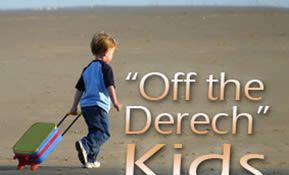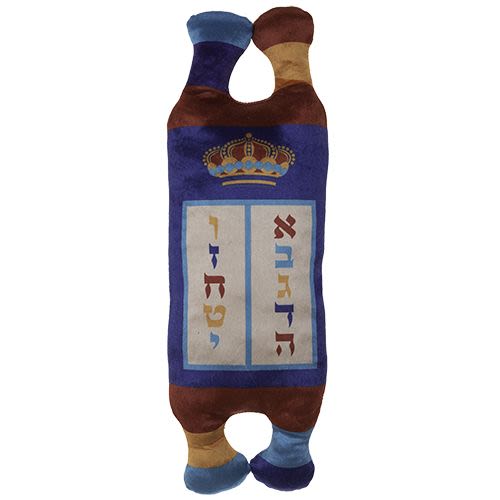
The Might of Manners
Knowing how to express appreciation for what we are given and to consider the feelings of others is the beginning of emotional intelligence...

Many years ago, on the settlement where I lived, I ran social skills workshops for girls. My goal was to introduce and cultivate good manners and increase sensitivity to others.
Many parents don’t realize how important it is to teach their children proper etiquette. Many focus exclusively on good grades or developing special talents. It’s true that learning Torah and the laws of Judaism is crucial for a true Jewish life and that we all need to learn reading, writing and arithmetic. But we must not forget how important it is to cultivate derech eretz (common decency), as it is written “Derech eretz precedes Torah.”
Think about it: the first thing we do when we wake up is thank God for another day of life. Throughout the day we continue to bless and thank Him for food, for money, for all the hidden miracles He performs for us. We also pray for the health and prosperity of others. It’s not just about us.
Good manners show acknowledgment and appreciation. They are the first step out of the narcissism of childhood. Most parents teach their children to say please and thank you at a very early age. Knowing how to express appreciation for what we are given and to consider the feelings of others is the beginning  of emotional intelligence.
of emotional intelligence.
Emotional intelligence is a huge advantage in building healthy relationships, getting along in school and acquiring a good name. As important as it is to study hard and pass tests, a child without social skills is bound to lose out.
When my children were little I taught them how to apologize. There’s a method that we learn from praying on Yom Kippur. It’s not enough to give a shrug and a mumble “sorry”. You have to spell out what you are apologizing for. You have to acknowledge that it caused pain and you have to ask for forgiveness. You have to say you’ll try to be more careful in the future. Sometimes a small gift can have a big impact. It’s the way to make amends and restore peace.
One of my sons once made fun of another little boy who had trouble speaking clearly. I sat with my son and, without shaming him, explained how hurtful that must have been for the boy. I asked him to imagine how he would feel if someone did that to his own little brother. (I purposely did not say “you” as that could evoke defensiveness.) Together we went to the boy’s house and my son said “I’m sorry I made fun of you and hurt your feelings. It was wrong and I won’t do it again.” Then he offered him a Popsicle. I will always remember the smile on that little boy’s face. And I could see my son’s happiness that he had done the right thing. After that they continued playing together and today they are still friends.
Every child has a pure soul that desires to do good. However, as children they are ruled by their baser instincts. Our job as parents is to help them distinguish between right and wrong and choose the good. Our job is to show them how to take the high road. There are times when I also have to apologize. Mothers make mistakes too and I make sure to ask forgiveness the same way I taught my children.
In the workshops, we conducted role-plays almost every week. The girls really looked forward to this as everyone loves to play-act. I collected costumes and props and we would recreate common situations that happen on the bus or in the classroom. For example, is it fair to save seats on a bus for friends? For how long? What if someone else needs to sit down? In what case should you give up your own seat? Or, how should we treat a new student in class? How would we want to be treated? Sometimes we would play out the scenario according to how our yetzer hora (evil inclination) would respond and then do it again letting our yetzer hatov (good inclination) rule. Afterwards we would discuss the difference.
As the weeks went by we tackled social and moral dilemmas. Are we allowed to reveal other people’s secrets? Can we join in a “friendly” gossiping session? Would you help your best friend cheat on a test? If everyone else is doing something dangerous would you be able to stand apart? How do we deal with peer pressure or being bullied? Have we ever bullied anyone? Are we allowed to tell a “white lie”?
I could actually see the girls starting to think and to realize that they had choices. The play-acting became a great way to examine possible actions and the resulting feelings. In addition, learning how to answer the phone and take down a message, politely refuse a babysitting job or ask someone for directions (I always tell them to find a mother with kids) gave them the confidence that comes with knowing what to do and how to do it.
Once I had the girls take turns saying what they liked about each other. I told them how to give a compliment and how to accept one graciously. We discussed how to be a good guest in someone’s home (bring a small gift, offer to help, make your bed, etc.) and how to make a guest comfortable in your own home.
At one point, one of the girls had a personal tragedy. I helped the others figure out what to say and how to help. After all, they couldn’t just ignore her loss but neither would they want to invade her privacy. It’s a tricky situation even for adults.
Back then, as a newly observant young mother and a recent immigrant to Israel, I wasn’t capable of helping my kids with their Hebrew homework. And forget about math—that’s always been Greek to me. But as a professional in the mental health field I knew the importance of good communication skills. I knew how essential it is for self-esteem and healthy relationships.
Before retiring at night, we ask for forgiveness from God for any intentional or unintentional slights to Him we may have caused throughout the day. We also make a statement forgiving anyone who offended us.
God expects us to be respectful and refined in our relationship with Him and with others. As royal children of the King, we can do no less. Let us be blessed with the merit to raise healthy, God-fearing children who are gracious and well-mannered. In this way they will find favor in the eyes of both God and man.












Tell us what you think!
Thank you for your comment!
It will be published after approval by the Editor.